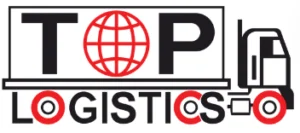# Get Free Quote
Electronics Transport Services in Mumbai – A Practical Guide for Bulk & Fragile Shipments
Electronic goods — whether it's televisions, home appliances, computer equipment, or industrial electronics — require precise handling and secure transport. In a city like Mumbai, where traffic density, weather conditions, and delivery timelines create complex logistics challenges, safely moving electronics is not just about speed — it's about control, packaging, and the right vehicle.
For bulk shipments or sensitive items, many companies rely on Mumbai Transport Services to ensure goods are delivered in secure, weatherproof conditions with minimal handling risk.
Why Electronics Need Specialized Transport
Transporting electronics isn't just about moving goods — it's about protecting delicate, high-value items from shock, theft, and moisture. Unlike general cargo, electronics require specialized attention across every step of the delivery process.
Here are a few key considerations that set electronics apart:

Shock-resistant packaging
Even minor impact can damage screens, circuit boards, or internal components.

Humidity control
Moisture during Mumbai's monsoon season can lead to corrosion, short circuits, or performance failures.

Anti-theft measures
Due to their resale value, electronics are frequent targets for theft during transport.

Regulatory compliance
Devices with lithium batteries or power sources may require adherence to specific handling and transport rules.
Because of these factors, electronics transport demands more than just space — it requires trained handlers, reliable timing, and protective enclosures.
In Mumbai, experienced logistics providers often use sealed container trucks, combine time-slot-based retail deliveries, and apply foam-based inner packaging to ensure maximum safety and efficiency. These practices significantly reduce return rates and preserve warranty coverage, especially for fragile or high-value electronics.
Common Challenges in Electronics Transport in Mumbai
Despite Mumbai’s vast logistics network, transporting electronics poses a unique set of challenges that logistics providers must anticipate and manage on a daily basis:
- Traffic Delays
Electronics shipments are often time-sensitive. Missed delivery slots can result in installation rescheduling, service disruptions, or even order cancellations — especially for B2B deliveries to retail showrooms and service hubs. - Rough Road Conditions
Mumbai’s inner roads, particularly in older industrial areas or during monsoon season, can become pothole-heavy. If packaging or cushioning is inadequate, even well-secured electronics risk internal damage. - Untrained Handling
Fragile items like TVs, printers, and UPS systems require careful lifting, stacking, and securing. A poorly handled consignment could result in product damage, customer dissatisfaction, and claims against warranty. - Monsoon Season Impact
From June to September, heavy rains can make open transport risky. Electronics with any exposure to moisture — even at the packaging level — are vulnerable to corrosion, short-circuiting, or returns due to water ingress.
✅ Case Insight: A leading Mumbai-based electronics distributor reduced warranty claims by 35% after switching from open trucks to sealed container trucks and implementing foam-padded pallets and early-morning dispatch windows for high-value deliveries.
Recommended Vehicles for Electronic Goods Transport
Depending on shipment volume and distance, popular truck options include:
| Truck Type | Ideal For |
|---|---|
| Container Trucks | Best for bulk and fragile shipments requiring full cover |
| Tempos | Suitable for smaller consignments to retail stores |
| Pickup Trucks | Used for appliance delivery and local movement |
Using container trucks provides protection against rain, dust, and theft — making them ideal for expensive or delicate items.
Top Logistics provides reliable & affordable Transport for Electronics Products in Mumbai
Best Practices for Safe Electronics Delivery
Ensuring the safe delivery of electronics in Mumbai requires more than careful driving — it demands structured preparation and a proactive logistics plan. Here are the most effective practices logistics providers follow to protect fragile and high-value shipments:
- Use Foam or Anti-Static Packaging
Secure every item using foam inserts, bubble wrap, or ESD-safe materials to prevent shocks and static damage during transit. - Secure Goods on Pallets
Heavy or multiple units should be strapped on pallets to avoid movement, tipping, or impact while loading, unloading, or in traffic. - Proper Labelling
Apply clear “Fragile” stickers and directional arrows so handlers understand how to lift and stack the boxes correctly. - Route Optimization
Plan deliveries to avoid rough roads and accident-prone turns — especially important during monsoon season. - Enable Live Tracking
Use GPS-enabled tracking to monitor delivery progress and receive alerts on route deviations or delays. - Use Trained Drivers & Handlers
Staff must be trained in stacking, fastening, and careful offloading to minimize breakage and maintain warranty compliance. - Limit Handling Transfers
Where possible, reduce the number of touchpoints by sending electronics directly to the destination — without mid-route transfers.
Each of these steps, when implemented consistently, drastically reduces the chances of damage and customer complaints while enhancing operational trust and reliability.
Final Thoughts
Transporting electronics in Mumbai requires more than just moving from point A to B. It involves careful preparation, protective packaging, trained handlers, and selecting the right vehicle type to protect both the physical product and the brand’s reputation.
Whether you're a supplier, distributor, or warehouse manager, choosing a reliable transport service like container truck logistics can reduce returns, preserve product warranties, and ensure that every consignment is delivered safely, efficiently, and on time.
A transport partner’s experience with fragile cargo, route planning under Mumbai traffic conditions, and attention to detail often makes the difference between a successful delivery and a costly mistake.

